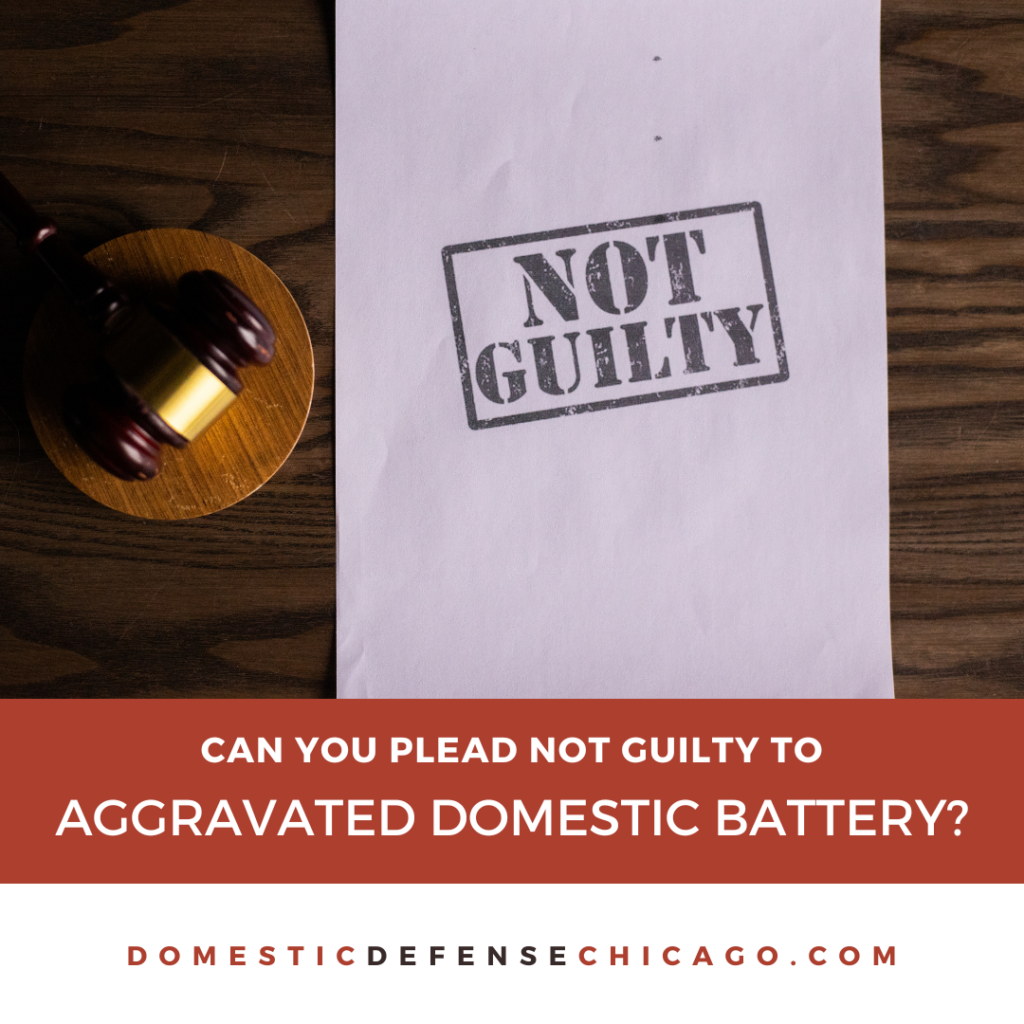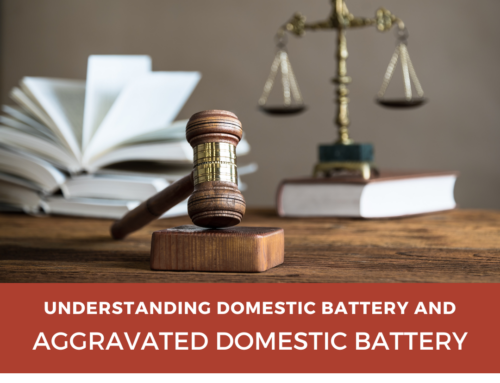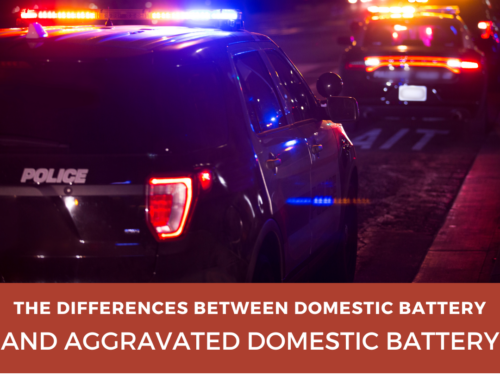Facing charges of aggravated domestic battery can be overwhelming, but understanding your legal options, including the plea of not guilty, is crucial.
Can You Plead Not Guilty to Aggravated Domestic Battery?
For those accused of aggravated domestic battery, this guide provides essential information on pleading not guilty and the legal process that follows. It covers:
- The right to plead not guilty
- The legal process after entering a not guilty plea
- Building a defense strategy
- The role of a lawyer in your defense
- Potential outcomes of a not guilty plea
Here’s a closer look at each.
The Right to Plead Not Guilty
Every individual charged with a crime, including aggravated domestic battery, has the legal right to plead not guilty. This plea asserts that you do not admit to the charges against you, and it is the prosecution’s responsibility to prove your guilt beyond a reasonable doubt.
Related: Domestic battery defense information
The Legal Process After Entering a Not Guilty Plea
After pleading not guilty, your case will proceed through the legal system. This typically involves pre-trial hearings, evidence discovery, and potentially a trial. During these stages, both the prosecution and defense will prepare their cases.
Building a Defense Strategy
A key part of responding to aggravated domestic battery charges is building a strong defense strategy. This might involve challenging the evidence, presenting an alibi, or other legal defenses like self-defense or defense of others.
Related: What happens if you resist arrest for domestic battery?
The Role of a Lawyer in Your Defense
Having a lawyer is crucial when facing serious charges like aggravated domestic battery. A lawyer can guide you through the legal process, help build your defense, and represent you in court. Their experience can be vital in navigating the complexities of the criminal justice system.
Potential Outcomes of a Not Guilty Plea
The outcomes of a not guilty plea can vary. If the prosecution fails to prove their case, you may be acquitted. If found guilty, sentencing will follow. A lawyer can help you understand the potential outcomes and prepare for each stage of the process.
FAQ About Pleading Not Guilty to Aggravated Domestic Battery
Here are some commonly asked questions about pleading not guilty to aggravated domestic battery.
What Does It Mean to Plead Not Guilty?
Pleading not guilty means you are formally denying the charges against you, requiring the prosecution to prove your guilt.
Related: Should you tell police your side of the story if they arrest you for domestic battery?
Can I Change My Plea After Pleading Not Guilty?
Yes, it’s possible to change your plea, but this decision should be made with careful consideration and legal advice.
How Does a Lawyer Help in a Not Guilty Plea?
A lawyer helps by advising on the legal implications of your plea, preparing your defense, and representing you throughout the legal proceedings.
What Should I Do if I’m Considering Pleading Not Guilty?
If you’re considering this plea, consult with a lawyer to discuss your case and the best legal strategy moving forward.
Related: Does a domestic battery conviction stay on your record forever in Illinois?
What Happens if I’m Found Guilty After Pleading Not Guilty?
If found guilty, the court will proceed to sentencing, where penalties can include fines, probation, or imprisonment.
Pleading not guilty to aggravated domestic battery is a significant legal step that sets the course for your defense. Understanding this process and working with a lawyer can help ensure that your rights are protected and that you are effectively represented throughout your case.
Do You Need to Talk to an Attorney About Domestic Battery Defense?
If you need to talk to a domestic battery defense attorney in Illinois, we’re here to help. Call us at 847-920-4540 now – we’ll be happy to give you a free consultation and talk to you about your options.







Leave A Comment
You must be logged in to post a comment.